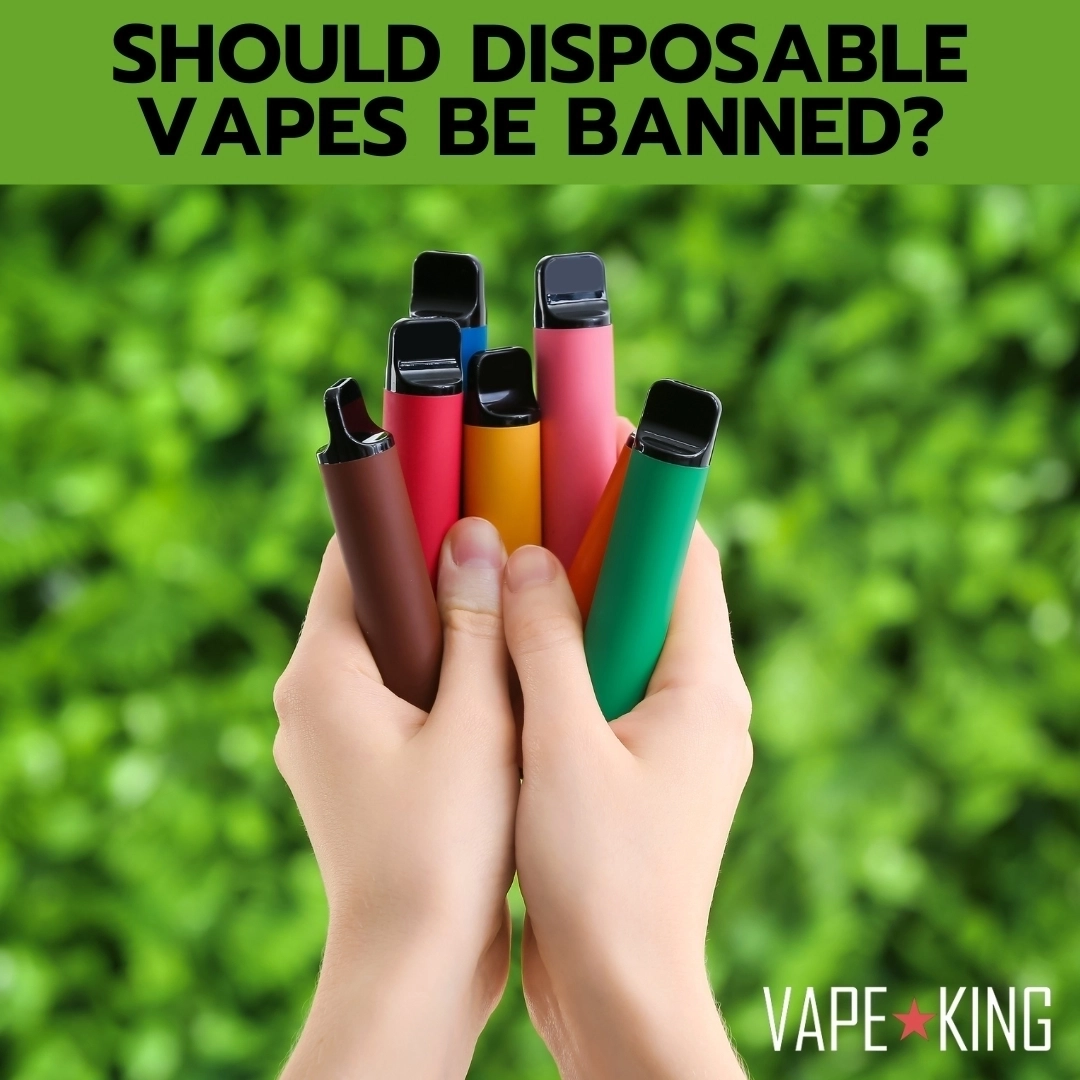Should Disposable Vapes Be Banned?

The demand for a prohibition on disposable vapes is escalating, and the reasons are evident. Instances of these single-use devices being thoughtlessly discarded along roadsides are all too familiar, exacerbated by headlines highlighting the millions discarded weekly. Additionally, disposable vapes are often implicated in the surge of youth vaping.
However, the case against these disposables extends beyond their environmental impact. Despite their apparent convenience, these devices are costly and lack the flexibility of refillable alternatives, which offer a multitude of flavor options. While there's a growing clamor for an outright ban, a knee-jerk reaction may not be the most prudent approach.
Reasons Against Banning Disposable Vapes:
- Black Market Emergence:
Approximately one-third of disposable vape devices sold in the UK are estimated to be illegal, showcasing how poorly crafted legislation can lead to unintended consequences.
Previous misguided regulations on e-liquid volume and nicotine concentration inadvertently fueled a black market. Illicit devices with higher liquid content and nicotine levels emerged, sidestepping recycling schemes and disregarding safety standards.
- Impact on Smokers:
Despite their drawbacks, disposable vapes serve as an accessible entry point for smokers transitioning to vaping, often aiding those who struggled with previous attempts to quit smoking.
Banning these devices might not deter all potential vapers from resorting to black market alternatives. In the broader context, considering the 76,000 annual deaths from smoking, removing an easy transition option can be viewed as a harsh measure.
- Necessity for Certain Smokers:
Some segments of the smoking population, particularly older individuals or those with disabilities and mental health issues, find it challenging to use refillable or rechargeable devices.
While efforts to transition these individuals to reusable devices should persist, maintaining access to easy-to-use disposables for this sub-group is crucial.
Alternatives to a Blanket Ban:
- Vaper Education:
Rather than an immediate ban, a comprehensive public health campaign could be initiated to educate users about the benefits of rechargeable, refillable devices. These devices are cost-effective, generate less waste, and often offer a superior vaping experience.
A focused effort should be made to convey the existence of viable alternatives that are comparably easy to use and environmentally less harmful.
- Recycling-Oriented Design Requirements:
Disposable devices, with thoughtful design, can be made more recyclable. Some examples feature easily removable batteries and materials designed for reuse or recycling.
Government intervention, working collaboratively with trade bodies, could establish regulations promoting recyclability while preserving the attractive qualities of disposables for smokers.
- Enforcement of Existing Regulations:
Stricter enforcement of existing rules preventing vape sales to children and ensuring the quality of legal vape devices is essential.
Additional resources for enforcement, coupled with more severe penalties for repeated and deliberate rule violations, are necessary to curb the prevalence of illegal vapes.
Implementing a Ban Thoughtfully:
- Transition Period:
If a ban is inevitable, providing ample time for existing disposable users to shift to reusable devices is crucial.
Consultation with smokers and vapers is necessary to minimize harm to public health, and the industry needs time to innovate and introduce appealing reusable alternatives.
- Public Health Campaign:
A pre-ban public health campaign should encourage disposable users to switch to reusable devices, coupled with a crackdown on irresponsible individuals undermining the health benefits of vaping.
Final Reflections:
The call for a ban on disposable vapes is understandable given the associated challenges. However, a nuanced policy, considering the complexities and potential pitfalls, may be a more responsible and effective approach. While a ban might garner political support, experiences from countries like Australia demonstrate that it may exacerbate issues rather than resolve them. Balancing the needs of smokers, the environment, and public health requires a thoughtful and comprehensive strategy.
No posts found
Write a reviewRecent posts
- WHO Issues Warning Regarding Falsely Labelled Propylene Glycol: A Caution for E-Liquid Manufacturers
- Salvaging a Wet Vape: Tips for Reviving Your Device After Water Exposure
- Discover the Top 10 Disposable Vapes in South Africa
- Unveiling Australia's Flawed Vaping Policies: A Catalyst for Illicit Markets

